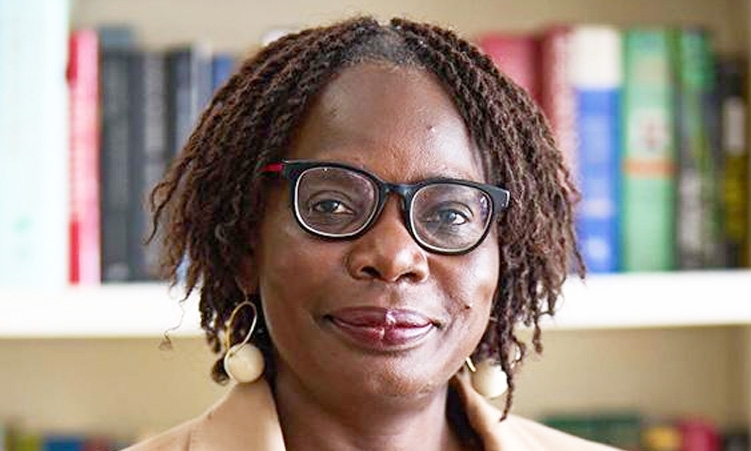

A quiet, gated estate in Karen became the site of tragedy in May 2020.
On the night of May 26, 2020, Veronica Kerubo Ongwae lost her life inside her home at Mystica Homes in Lang’ata, Nairobi.
Her partner, Dennis Orora Onsando, later admitted to killing her.
On June 5, 2025, Justice Diana Kavedza of the High Court at Kibera sentenced Onsando to ten years in prison for manslaughter, marking the end of the case marred with betrayal, violence and remorse.
Onsando had initially been charged with murder under section 203 as read with section 204 of the Penal Code, but following a successful plea bargain, he admitted to the lesser charge of manslaughter.
The plea agreement was signed on January 28, 2025, nearly five years after the crime.
The court found that the killing, though unlawful, had not been premeditated and was likely fueled by alcohol and anger.
According to the agreed facts, Ongwae was first reported missing by her sister Sylvia on May 27, 2020.
She filed a report at Ngando Police Post, mentioning that Ongwae’s vehicle, a silver car, had been spotted in Ngando being driven by an unknown man.
Officers Sergeant Gilbert Otieno and Police Constable Robert Wambugu began investigations and managed to trace the vehicle.
Inside, they found the Onsando. The court heard that during an attempted interrogation, Onsando behaved suspiciously.
Before officers could properly question him, he sped off in the car towards Ngong Forest, hooting and flashing lights, attracting the attention of the public.
The officers managed to stop the vehicle amid the commotion and arrested him.
A search of the vehicle yielded two sets of keys and a black bag containing a Ramtons electric iron.
On the same day, Sylvia visited Satellite Police Station, where she met two of Ongwae’s friends.
They informed police that the deceased had last been seen in Onsando’s company.
Under pressure, Onsando initially misled police, but later led them to Ongwae’s residence at Mystica Homes, where using one of the recovered keys, the officers gained entry.
The court heard that Onsando declined to accompany the officers during the search, instead remaining in the sitting room.
It was in the bathroom that officers made the grim discovery: Ongwae’s half-naked body lay lifeless, with a blood-stained bedsheet next to her.
The Directorate of Criminal Investigations at Karen took over the case.
They processed the crime scene and transferred the body to Montezuma Mortuary, where a post-mortem by Dr Johansen Oduor confirmed the cause of death as asphyxia due to manual strangulation
Meanwhile, samples from the blood-stained bedsheet and nail clippings from the deceased were sent to the Government Chemist.
The government analyst confirmed that the DNA from the items matched the deceased, reinforcing the link between the accused and the crime scene.
When the plea agreement was presented to court, Justice Kavedza confirmed that it was voluntary and that Onsando’s constitutional rights had been respected.
He was consequently convicted of manslaughter.
In mitigation, Onsando admitted to killing Ongwae and claimed he had been under the influence of alcohol and overwhelmed by anger at the time.
He expressed remorse and informed the court that he had since undergone rehabilitation while in prison.
He presented seven certificates as evidence of self-improvement, including one declaring him a born-again Christian.
His lawyer asked the court to consider a non-custodial sentence, noting that Onsando had also reached out to Ongwae’s family to seek forgiveness, although the family declined to engage.
On the other hand, the victim’s lawyer strongly opposed leniency.
He submitted that while the charge had been reduced, the crime was essentially a case of first-degree murder.
“The court should take into consideration that the victim’s life was taken away without provocation,” he argued.
The prosecution supported these submissions, pointing to the broader societal issue of rising femicide cases.
“The court should impose an appropriate custodial sentence,” the State urged.
In her judgment, Justice Kavedza noted that Onsando had abandoned his wife and child to cohabit with Ongwae, highlighting the closeness of their relationship.
Evidence showed that he had been possessive and controlling, and a known alcohol abuser.
The judge found it highly likely that the crime was committed under the influence of alcohol, noting that a day after the offence, Onsando had been seen in Ngando area drinking chang’aa with a woman named Mary Ndinda.
He had also sold electronic stolen to buy alcohol.
The court referred to a past case and adopted sentencing principles established in another case, where courts are advised to consider the gravity of the crime, motive and societal interest when imposing a sentence.
Justice Kavedza noted, “One of the prime objectives of criminal law is imposition of appropriate, adequate, just and proportionate sentence commensurate with the nature and gravity of the crime.”
Taking into account Onsando’s remorse, time already served in custody, and the need for structured rehabilitation, the court sentenced him to ten years’ imprisonment, effective from May 27, 2020, the date of his arrest.
The sentence was to run without the option of remission. Remission is simply cancellation of part of a prison sentence.
"While the court accepts the probation officer’s assessment that the offence was not premeditated and was likely influenced by alcohol abuse, the violent killing of a woman who had offered the accused shelter calls for a custodial sentence,” Justice Kavedza ruled.


















